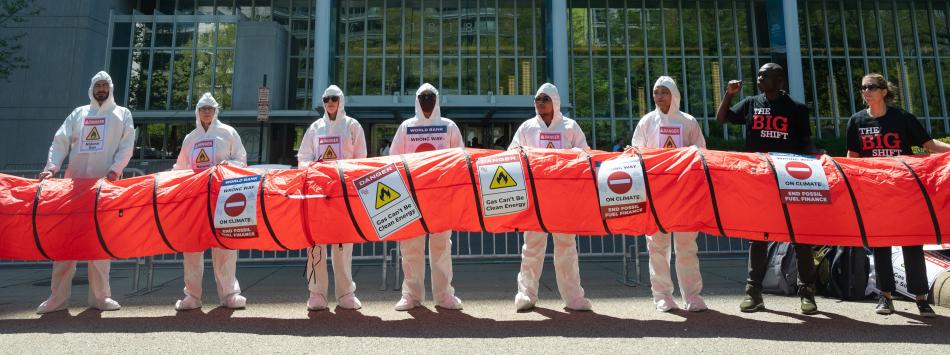The Paris PACT Summit taking place from 22-23 June comes at a critical moment when the world is grappling with the cascading consequences of climate change, energy insecurity, phasing out fossil fuels and just energy transition discussion, health crises, and economic challenges, particularly in the most vulnerable countries in the Global South. Global leaders, international institutions, and solidarity actors need to act now to meet the 1.5°C limit and ensure a just transition by phasing out fossil gas and shifting public finance to renewable energy sources.
The dash for gas has been intensifying: critical players such as the G7, the World Bank Group and other major Multilateral Development Banks (MDBs) have contributed to advancing the propaganda to promote gas as a transition fuel. These actions promote a desire to maintain their hegemony of exploitation and dominance, losing sight of the critical climate threat to human survival. The upcoming summit and other political discussions at the G20, UNSG, World Bank Annuals and COP28 must pave the way for a swift phase out of gas.
Myth of the Paris PACT Summit:
It is unclear how the Paris PACT Summit (known as the Macron Summit) will bring an end to the dash for gas and address the inequities in the neo-colonial financial architecture of the G7, MDBs and International Financial Institutions (IFIs) that disadvantage the Global South. The G7 has just added new fossil gas investment plans in contradiction to the evidence of science that calls for an end to fossil fuels.
Even France's largest oil company, Total Energy Company Ltd, which according to evidence from Impakter and Reuter continues to destroy lives and livelihoods of indigenous communities around the world, and the French government do not attempt to ensure justice nor any form of accountability. If France could not convince its G7 colleagues at Hiroshima in May 2023 on phasing out fossil gas and shifting to renewables, how can it take the lead on a summit just a month later without guaranteeing the participation of the major players in public finance?
Gas must go:
The Big Shift Global movement re-echo its calls to shareholders to take specific actions to accelerate the transition away from fossil gas:
- Commit to a Fossil Gas Phase Out through a Just Transition Process: The PACT Summit should commit MDBs and IFIs to adopt clear policies that exclude fossil gas investments and a rule against the expansion of fossil gas.
- Shift Finance into Sustainable Renewable Energy: MDBs should commit to shifting finance from fossil gas into a just energy transition to sustainable, renewable energy Full consultation with local communities and the integration of their perspectives are vital to ensure that the transition is equitable and inclusive.
- Accountability and Transparency: Global leaders must demand strong accountability and transparency measures for MDBs to ensure that funds are used effectively and that the transition away from fossil gas is carried out in a responsible manner. This includes monitoring and reporting mechanisms, as well as robust oversight of projects and their impacts.
The Paris PACT Summit ought to be a historical opportunity to address the pressing global challenges of climate change and energy security. We call on world leaders to use the political opportunities this year to respond to the demands of the Big Shift Global movement to urgently transition away from fossil gas, in ending the dash for gas in the Global North and South.
